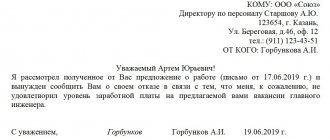Nuances and requirements for a settlement agreement in bankruptcy
The decision of the meeting of creditors to conclude a settlement agreement is adopted by a majority vote of creditors and is considered adopted if all creditors for obligations secured by a pledge of the debtor’s property vote for it. Important clarification: Secured creditors have some privilege. Thus, if the arithmetic majority of creditors is in favor of a settlement agreement, but among the minority that is against there is at least one secured creditor, then the settlement agreement cannot be concluded . On the part of the citizen-debtor, the decision on a settlement agreement is made by the citizen; on the part of the debtor - a legal entity, it is made by the head of the debtor, the acting head of the debtor or the corresponding arbitration manager.
If a settlement agreement in a bankruptcy case is a transaction for the debtor, which, in accordance with federal laws and (or) the debtor’s constituent documents, is made on the basis of a decision of the debtor’s management bodies or is subject to agreement with the debtor’s management bodies, the decision to conclude a settlement agreement on behalf of the debtor may be adopted after a decision by the debtor's management bodies.
The Supreme Court clarified that it is possible to appeal the settlement agreement without appealing the court decision that approved it
On June 6, the Supreme Court published Determination No. 307-ES18-10383 (3), in which it examined whether, after declaring a citizen bankrupt, it is possible to register the transfer of ownership of an apartment to one creditor who has entered into a compensation agreement.
In order to ensure the fulfillment of credit obligations of a third party, Sergey Feoktistov concluded a mortgage agreement (pledge of real estate) with OJSC Bank Capital Credit Partnership, under the terms of which he pledged a plot of land to the latter. Later, under the assignment agreement, the bank assigned the rights of claim under the loan agreement, as well as under the agreements ensuring its execution, in favor of PJSC Investment Financial Company Soyuz.
The debtor and the investment company entered into an additional agreement to the mortgage agreement on the transfer of the company as collateral for the apartment. Later, the company filed a lawsuit against the debtor and other persons in a court of general jurisdiction to collect the debt under the loan agreement and foreclose on the pledged property, and then, under an assignment agreement, ceded the rights of claim to City LLC, including against the debtor.
On December 28, 2015, a settlement agreement was approved by a court of general jurisdiction, under the terms of which City forecloses, inter alia, on the apartment by retaining it at a price of more than 20.7 million rubles. By a court decision, the apartment was released from seizure and previously imposed bans on registration actions.
The transfer of ownership of the apartment to City was confirmed by Rosreestr after the initiation of bankruptcy proceedings against Sergei Feoktistov (September 9, 2021). Subsequently, the apartment was alienated in favor of a third party.
In 2021, as part of the bankruptcy case of the debtor in the procedure for restructuring his debts, the financial manager applied to the Arbitration Court of St. Petersburg and the Leningrad Region with a statement to invalidate the debtor’s transaction for the alienation in favor of City of an apartment under a purchase and sale agreement.
Challenging the parties' compliance with the settlement agreement, the financial manager referred to the alienation of the apartment after the initiation of bankruptcy proceedings against the debtor without observing the order of satisfaction of creditors' claims established by the Bankruptcy Law. No arguments were presented regarding the invalidity of the settlement agreement itself, approved by the court of general jurisdiction.
The court of first instance refused to recognize the transaction as invalid. He proceeded from the fact that the company’s retention of the apartment was provided for by a settlement agreement approved by the court, which was impossible to challenge without appealing the relevant judicial act. This decision was upheld by appeal and cassation.
The financial manager filed a complaint with the Supreme Court. The highest authority noted that by agreement of the parties, the obligation can be terminated by providing compensation in exchange for performance (payment of money, transfer of property, etc.) (Article 409 of the Civil Code of the Russian Federation). “Since the agreement concluded between the parties provides for the provision of real estate (apartment) as compensation, the ownership of which in accordance with clause 2 of Art. 223 of the Civil Code arises for the acquirer of this property from the moment of registration of the transfer of rights; it is considered fulfilled only after the transfer of the title of owner of real estate to the creditor in the manner prescribed by law. The mere approval by the court of a settlement agreement in the absence of registration of the transfer of ownership does not entail the onset of legal consequences, the creation of which was directed by the will of the parties when concluding it,” the Supreme Court pointed out.
The court noted that after declaring a citizen bankrupt and introducing a procedure for restructuring his debts, the bankruptcy manager carries out the measures provided for by the Bankruptcy Law in order to satisfy the claims of all creditors of the debtor. At the same time, creditors who filed claims against the debtor as part of a bankruptcy case before registering the transfer of ownership of real estate alienated by the debtor must be in an equal position with the creditor who entered into an indemnity agreement. A different approach, according to the Supreme Court, contradicts the objectives of regulating insolvency relations.
The court indicated that in the case under consideration, the execution of the settlement agreement led, in the opinion of the financial manager, to the preferential satisfaction of the company's claims over other creditors of the debtor, and therefore could be challenged under the rules of Chapter. III.1 of the Bankruptcy Law (subclause 6 of clause 1 of the Resolution of the Plenum of the Supreme Arbitration Court of December 23, 2010 No. 63 “On some issues related to the application of the Federal Law “On Insolvency (Bankruptcy)””).
“The financial manager’s arguments in support of the application about the debtor’s affiliation with the company and about the existence of other creditor claims at the time of the commission of the contested actions were not verified by the courts, the application was not considered on its merits,” the Court found. In this regard, he overturned the lower decisions and sent the case for a new trial at first instance.
In a commentary to AG, lawyer, partner of Yurlov and Partners Law Firm Kirill Gorbatov agreed with the position of the Supreme Court, since the courts unreasonably considered that the financial manager should challenge the settlement agreement and the court’s ruling on its approval. “The settlement agreement itself may be legal - actions to implement this settlement agreement were subject to challenge, since they took precedence over the execution of the claims of other creditors included in the register of claims,” he considered.
Kirill Gorbatov noted that since this case deals with the bankruptcy of a citizen, Art. 213.27 of the Bankruptcy Law provides for special regulation of the procedure for repaying the claims of a secured creditor. In particular, the law states that 10% of the price of the collateral property should go to the bankruptcy estate for distribution among all creditors. “In this regard, the transaction under consideration to retain the property (100% of the collateral property) in any case is subject to recognition as invalid in accordance with Art. 61.3 of the law, since there is priority satisfaction of the creditor in at least 10% of the price of the collateral,” the lawyer concluded.
Lawyer of the practice of restructuring and bankruptcy of the law firm ART DE LEX Yulia Shilova noted that the position given in the Supreme Court’s ruling is not new to judicial practice, since the admissibility of challenging actions for the execution of a settlement agreement approved by a judicial act, which led to the preferential satisfaction of the requirements of an individual creditor, is directly provided for in clause 1 of the Resolution of the Plenum of the Supreme Arbitration Court No. 63.
Yulia Shilova suggested that the courts of three instances made the wrong decision, since they proceeded from the position of the Presidium of the Supreme Arbitration Court of the Russian Federation, set out in Resolution No. 4161/03 of September 30, 2003, from which it followed that challenging a transaction made in pursuance of a settlement agreement approved by the court separately from challenging the judicial act by which the settlement agreement was approved is impossible. Such a transaction can only be challenged by appealing the judicial act that approved this settlement agreement. However, she noted, with the adoption of Resolution of the Plenum of the Supreme Arbitration Court No. 63, the Court has already changed its position.
Partner of Bartolius Law Firm Natalya Vasilyeva noted that the position of the Supreme Court seems fair and consistent, since even in sub. 6 clause 1 of the Resolution of the Plenum of the Supreme Arbitration Court of the Russian Federation No. 63 states that according to the rules of Ch. III.1 of the Bankruptcy Law, actions to execute a judicial act, including rulings on approval of a settlement agreement, may be challenged. At the same time, this resolution separates challenging the execution of a judicial act from challenging the judicial act itself (see paragraph 3 of paragraph 1 of Plenum Resolution No. 63). “Consequently, all those actions of the debtor that took place after the initiation of the bankruptcy case and were aimed at fulfilling the previously approved (in the case under consideration - within a year before the initiation of the bankruptcy case) settlement agreement fall under the concept of transactions with preference and are subject to challenge under rules of Art. 61.3. Bankruptcy Law,” said Natalya Vasilyeva.
She noted that since the above clarification was formulated by the Supreme Arbitration Court of the Russian Federation almost 9 years ago, an analysis of judicial practice shows that cases with a similar texture rarely reach the Supreme Court, which means that judicial errors are corrected in lower authorities.
Lawyer of the Moscow AP Vitaly Ulyanov considered that the Supreme Court absolutely correctly corrected the errors in the application of substantive law made by lower courts. He pointed out that the courts mistakenly believed that the financial manager was challenging the settlement agreement, according to which the pledged property was transferred into the ownership of the creditor, while the execution itself under the settlement agreement, which is a transaction, was being challenged (clause 9 of the Resolution of the Plenum of the Supreme Arbitration Court of the Russian Federation dated July 18, 2014 No. 50 “On reconciliation of the parties in the arbitration process”).
In addition, the lawyer noted that the possibility of invalidating the execution (provision of compensation) under a valid transaction within the framework of a bankruptcy case is expressly provided for in subsection. 1 clause 1 of the Resolution of the Plenum of the Supreme Arbitration Court No. 63. “Consequently, there is no difference between the execution of a settlement agreement (approved by the court) or any other civil law transaction from the point of view of preferential satisfaction of competing claims of creditors in the bankruptcy of the debtor (Article 61.3 of the Law about bankruptcy),” said Vitaly Ulyanov. He added that all creditors of the debtor before declaring him bankrupt bear the risk of receiving extraordinary performance of an overdue obligation in anticipation of bankruptcy.
Participants
Participation in the settlement agreement by third parties is allowed, for example, participants of the debtor who assume the rights and obligations provided for in the settlement agreement. Third parties may participate in the settlement agreement if their participation does not violate the rights and legitimate interests of creditors. Third parties have the right to provide security for the debtor’s execution of the settlement agreement.
Content and form
A settlement agreement as a bankruptcy procedure is concluded in writing. On the part of the debtor, the settlement agreement is signed by the director or arbitration manager; on behalf of the creditors, the settlement agreement is signed by a representative of the meeting of creditors. From third parties, in case of participation, the settlement agreement is signed by these persons or their representatives.
A settlement agreement in case of bankruptcy of a legal entity contains the procedure and terms for fulfilling the debtor’s obligations in monetary form. Please note that the settlement agreement cannot by default specify the transfer of property to creditors to pay off the debt. This occurs because the sale of the debtor's property occurs in accordance with special procedures and cannot be transferred to creditors. Compensation to creditors may be provided with the consent of the individual creditor to whom it is provided, if this does not violate the rights of others included in the register of creditors.
Legal support of bankruptcy proceedings
Take advantage of free assistance from an experienced lawyer using the link below.
Consultation is possible online or in our Moscow office. ASK AN EXPERT
Terms of settlement agreement in bankruptcy
The terms and stages of concluding a settlement agreement in bankruptcy are as follows. After signing - concluding a settlement agreement in a bankruptcy case by the debtor, creditors and third parties, the settlement agreement is submitted for approval to the arbitration court considering the bankruptcy case. Approval of a settlement agreement by the court is made only after the claims of first and second priority creditors have been satisfied, i.e. creditors whose claims arise from the debtor causing harm to life or health, payment of severance pay and (or) wages of persons working or who worked under an employment contract, and on the payment of remuneration to authors of the results of intellectual activity.
The arbitration court checks the contents of the settlement agreement for compliance with the requirements of the law and the absence of violations of the rights of third parties not participating in the settlement agreement, as well as creditors who voted against the settlement agreement at the meeting of creditors, or did not take part in the voting. In addition, the court checks the credentials of the persons who voted for the settlement agreement and signed it.
Approval of a settlement agreement may be refused to the extent that the creditor's representative, when voting to conclude a settlement agreement, exceeded the powers granted to him by the bankruptcy law, power of attorney or constituent documents of the creditor, if it is proven that the person acting on behalf of the debtor knew or could not help but be aware of the limitations of such powers.
The arbitration court has the right to approve a settlement agreement even if the person acting on the part of the debtor knew or could not have been unaware of the limitations of the powers of the creditor’s representative, but the vote of this representative did not influence the decision to conclude a settlement agreement.
The court does not have the right to change the content of a settlement agreement adopted at a meeting of creditors and submitted to the court for approval.
Example of an application for approval of a settlement agreement
In arbitration cases, the parties often manage to resolve the dispute through a compromise at an intermediate stage. All agreements are reflected in the settlement agreement, which is approved by the court.
We recommend! How to recover legal costs and expenses
A ruling is issued that contains all the conditions for reconciliation point by point. However, it happens that the settlement agreement is subsequently ignored. Then there is nothing left to do but apply to the arbitration court again.
An application for non-fulfillment of the settlement agreement is filed. Its purpose is to obtain a writ of execution to enforce the arbitration court's ruling. Below is an example form of the document.
Arbitration Court of Moscow
Bolshaya Tulskaya street, 17
Plaintiff: Limited Liability Company "Vympel"
Tretyakovsky proezd, 8, office 2
Defendant : Private
st. Dubinina, 4, building 5, office 1
Case No. 169384-18
Statement
on obtaining a writ of execution due to non-fulfillment of a settlement agreement
On June 5, 2021, Vympel LLC filed a claim with the Moscow Arbitration Court against the Black Sea Fleet Avers to collect a debt in the amount of 200,000 rubles. The defendant did not fulfill his obligations to pay for the goods received under the supply agreement.
By ruling dated June 12, 2018, proceedings were opened in arbitration case No. 169384-18. During the proceedings, the parties to the dispute came to a settlement agreement, which was approved by the court (ruling dated 09/05/2018).
Its terms stipulate that the defendant will repay the debt in full by December 25, 2021. However, as of January 10, 2021, money has not been received from the Black Sea Fleet Avers to the bank account of Vympel LLC. Moreover, the defendant stopped making contact.
I believe that the ruling made by the arbitration court on approval of the provisions of the settlement agreement requires forced execution (Part 2 of Article 142 of the Arbitration Procedure Code of the Russian Federation). To do this, in accordance with Part 2 of Art. 318 of the Arbitration Procedure Code of the Russian Federation, a writ of execution is issued. It is drawn up by the arbitration court that adopted the relevant judicial act during the consideration of the case.
Based on this information, and guided by Art. Art. 142, 318, 319 Arbitration Procedure Code of the Russian Federation,
We recommend! Stages of civil proceedings: concept and main features
I ask the court:
Issue a writ of execution in the prescribed form for the purpose of forcing the execution of the settlement agreement concluded between Vympel LLC and the Black Sea Fleet "Avers" and approved by the ruling of the Moscow Arbitration Court dated September 5, 2021 in the framework of case No. 169384-18.
Application:
A copy of the court ruling approving the settlement agreement
Director of Vympel LLC Kuzmin A. Yu.
Grounds for refusal
The court has the right to refuse to approve a settlement agreement in bankruptcy if the obligation to repay the debt under the claims of first and second priority creditors has not been fulfilled on the date of approval of the agreement, as well as in the case of:
- violation of the procedure for concluding a settlement agreement established by bankruptcy law;
- failure to comply with the form of the settlement agreement;
- violations of the rights of third parties;
- contradictions between the terms of the settlement agreement and federal laws and other regulatory legal acts;
- the presence of other grounds for the nullity of transactions provided for by civil law.
If the court refuses to approve the settlement agreement, it is considered not concluded. However, refusal does not prevent the conclusion of a new settlement agreement.
The determination to approve or refuse to approve a settlement agreement may be appealed to a higher court.
If the ruling on approval of the settlement agreement is cancelled, bankruptcy proceedings are resumed from the bankruptcy procedure in which the decision to conclude the settlement agreement was made.
Author's podcast “The Investigator Will Call”
A project by our partners Andrey Shevchenko and Mikhail Kuchin, where they analyze the most resonant events in the country and their consequences for all of us.
Everything about new laws and high-profile cases in Russia and in the world is as accessible as possible and without tediousness.
Find out more
NTVP "Kedr - Consultant"
LLC "NTVP "Kedr - Consultant" » Services » Legal consultations » General civil issues » How to force the defendant to fulfill the terms of a settlement agreement if he evades them
Question:
The defendant is evading fulfillment of the terms of the settlement agreement approved by the court, how can he be forced to comply in this case, contact the bailiff service?
Answer:
In accordance with Art. 13 of the Code of Civil Procedure of the Russian Federation, courts adopt judicial decisions in the form of court orders, court decisions, court rulings, decisions of the presidium of the supervisory court.
Court decisions that have entered into legal force, as well as legal orders, demands, instructions, summonses and appeals from courts are mandatory for all state authorities, local governments, public associations, officials, citizens, organizations without exception and are subject to strict execution throughout the territory Russian Federation.
Failure to comply with a court order, as well as other manifestations of contempt of court, entails liability under federal law.
Art. 13, “Civil Procedure Code of the Russian Federation” dated November 14, 2002 N 138-FZ (as amended on April 6, 2015) {ConsultantPlus}
By virtue of Art. 13 of the Code of Civil Procedure of the Russian Federation, a court ruling on approval of a settlement agreement is binding for persons participating in the case, has the force of a court decision and is subject to execution, including by force.
Thus, the court’s ruling on approval of the settlement agreement, like any other court ruling, is binding on the persons participating in the case and is subject to mandatory execution, which is why it is not inferior to the court’s decision.
By means of a settlement agreement, the parties themselves determine the distribution of mutual rights and obligations, and therefore it must contain information agreed upon by the parties on the conditions, amount and timing of fulfillment of obligations in the dispute that is the subject of litigation.
{Article: Inducing the parties to peace in cases of compensation for damage caused as a result of a traffic accident (Morozova T.V.) (“Arbitration and civil process”, 2014, No. 9) {ConsultantPlus}}
In this case, the defendant should apply to the court that adopted the decision to approve the settlement agreement for the issuance of a writ of execution and, on the basis of it, forcibly collect the debt from the defendant.
The explanation was given by Igor Borisovich Makshakov, legal consultant of LLC NTVP Kedr-Consultant, October 2015.
When preparing the answer, SPS ConsultantPlus was used.
This clarification is not official and does not entail legal consequences; it is provided in accordance with the Regulations of the CONSULTATION LINE (www.ntvpkedr.ru).
Consequences of a settlement agreement in bankruptcy for legal entities
The settlement agreement may be terminated by the arbitration court in relation to all creditors at the request of the bankruptcy creditor or creditors who, on the date of approval of the settlement agreement, had at least one-fourth of the claims against the debtor, if the debtor violates the terms of the bankruptcy settlement agreement in relation to the specified number of creditors.
If the debtor fails to comply with the settlement agreement, creditors have the right to apply, without terminating the settlement agreement, to the arbitration court that considered the bankruptcy case to obtain a writ of execution to collect the remaining outstanding claims.
Thus, a settlement agreement is a fairly effective way to resolve debt in bankruptcy proceedings, since it allows the parties to significantly reduce the time and material costs associated with the bankruptcy procedure. For the debtor and its participants, the settlement agreement is all the more beneficial, since it provides the opportunity to reduce the amount of debt by the amount of penalties during negotiations with creditors. At the same time, the debtor's participants have the opportunity to avoid subsidiary liability by providing security or financing the debt.
Recommended viewing/reading:
Involvement in subsidiary liability
The Supreme Court explained how to implement the settlement agreement
The Supreme Court decided: a court-approved settlement agreement that is not executed voluntarily is subject to enforcement. If part of the money has already been paid, the bailiff must still initiate enforcement proceedings on the basis of the execution list and, within the framework of it, find out all the circumstances. Read about how the Supreme Court came to this conclusion.
PJSC Sberbank of Russia entered into a settlement agreement with loan debtor Karina Ivanova*, which was approved by the court. The settlement agreement contained a debt repayment schedule, as well as a condition: if Ivanova does not pay the debt voluntarily, the bank will be able to forcibly collect money from her through bailiffs. To secure the obligation, the bank entered into a preliminary mortgage agreement with Ivanova for her basement, the initial sale price of which is RUB 6,642,000. In total, Ivanova owes the bank 10,163,466 rubles under the settlement agreement.
The debtor paid Sberbank of Russia PJSC to repay the obligation 431,371 rubles. according to schedule. However, the bank considered this insufficient and received a writ of execution, on the basis of which the bailiff initiated enforcement proceedings to foreclose on the basement.
Ivanova did not agree with this - after all, she fulfilled the terms of the settlement agreement in the amount of 431,371 rubles. – and filed an administrative claim in court to declare the bailiff’s decision to initiate enforcement proceedings illegal.
The Khanty-Mansiysk District Court rejected Ivanova's request. He came to the conclusion that the writ of execution was sent to the FSSP within the period established by law, the contested decision was made on the basis of this writ of execution, and therefore the rights of the administrative plaintiff were not violated.
The court of the Khanty-Mansiysk Autonomous Okrug-Ugra overturned this decision and adopted a new one, which satisfied Ivanova’s claims. He considered that the executive document did not comply with the requirements of the law and was not subject to enforcement in its meaning and content. This means, according to the appeal, that the bailiff’s decision to initiate enforcement proceedings is illegal.
The FSSP office for the Khanty-Mansiysk Autonomous Okrug-Ugra filed a cassation appeal, but the judge of the court of the Khanty-Mansiysk Autonomous Okrug-Ugra refused to transfer it to the court of cassation. But the Supreme Court accepted the complaint. He came to the conclusion that the lack of information about non-fulfillment of the settlement agreement is not a basis for the court’s refusal to issue a writ of execution and for the bailiff’s refusal to initiate enforcement proceedings. Circumstances related to execution are subject to clarification during enforcement proceedings. Therefore, the Supreme Court canceled the appeal ruling and upheld the decision of the first instance court (No. 69-КГ17-25).
When making a decision to initiate enforcement proceedings, the bailiff does not have the right to change the subject of execution compared to the judicial act. But during enforcement proceedings, he must respond to changes in factual circumstances, for example, to the repayment of a debt. He must do this primarily through the institution of clarification of the executive document.
– Natalya Kolerova, lawyer, project manager at S&K Vertical Law Firm
“The Supreme Court pointed out the bailiff’s mistake - he should have initiated enforcement proceedings for the amount indicated in the execution list, and subsequently reduced this amount by the amount already executed voluntarily,” says BMS Law Firm lawyer Vladimir Shalaev . “Therefore, the administrative claim was not subject to satisfaction, and the decision of the Supreme Court was legal and justified,” confirmed lawyer, adviser to Muranov, Chernyakov and Partners, Olga Benedskaya . She also recalled the definition of the Constitutional Court No. 1286-O-O, which states: the issuance of the executor only fixes the rights and obligations of the parties established by the court and does not create new encumbrances for the debtor; the issuance of an executor for the entire amount payable under the settlement agreement does not prevent the debtor from presenting evidence of partial execution of the settlement agreement during enforcement proceedings. And Ksenia Stepanishcheva, senior lawyer of the Moscow CA “Kovalev, Tugushi and Partners” , said that this position was reflected in recent judicial practice (for example, No. 33-4612/2017, No. 13-43/2017, No. 11a-250/2016 ).
*Name and surname have been changed by the editors.
- Settlement agreement, Judicial practice, Courts and judges
- Supreme Court of the Russian Federation
- Law “On Enforcement Proceedings”
- Enforcement proceedings







